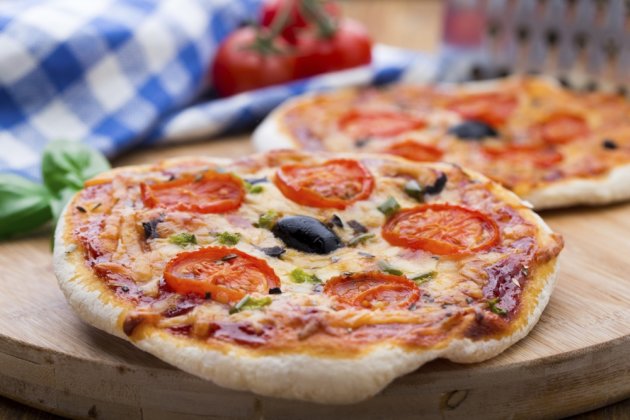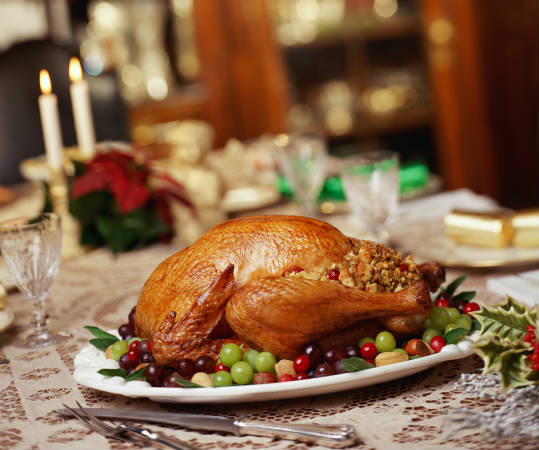Comfort eating does not work' says science, so step away from that tub you're emptying of ice cream and filling with tears.
Instead, it has discovered that most bad moods will get better on their own and food doesn't make a difference.
Er, Science, have you ever even BEEN in a bad mood?
Experiments deny food's importance
The research worked by putting 100 college students in the US in a bad mood (by the very scientific method of showing them sad clips from films) and then splitting them into groups to see how what they ate, or didn't eat, affected their mood.
And they found that it didn't really matter what they ate or if they ate at all. But as anyone who has emotionally eaten (even if you wouldn't consider yourself an 'emotional eater'), this experiment is, in our scientific opinion, complete rubbish.
Food is hugely important to us emotionally complex humans, and most women particularly will have had bouts where their relationship with it isn't the healthiest.
Whether it's restricting food as something to control in an otherwise rollercoaster life, to bonding with friends over a shared dessert or treating yourself to a take away when you've had a bad day at work, food is an important tool in our psychological make up.
Dr Pam Spurr says that around 70 per cent of women are 'emotional eaters' and that their mood can be a huge part of why healthy eating and dieting fails.
Because emotional eating isn't just having a cake when we're in a grump, it's a way to forget about problems, give yourself an instant mood boost and a fall back to deal with self esteem issues. It's certainly not about having a bar of chocolate after a sad film.
Will any food do?
The research found that eating something seen as 'comfort food' such as pizza or ice cream, did make people feel better. But equally eating something a bit healthier improved mood too. That would suggest that it's more the process of eating that cheers us up.
But then, the students' moods improved with no food as well, suggesting it's really just a case of sitting it out until you feel better.
But if you're feeling down, which are you going to reach for - a carrot or a lovely slice of Victoria sponge?




![[Jo Romero] [Jo Romero]](https://s3.yimg.com/bt/api/res/1.2/649x8MEBo9NDTYU5i0bWdA--/YXBwaWQ9eW5ld3M7cT04NTt3PTYzMA--/http://l.yimg.com/os/publish-images/lifestyles/2014-12-11/34695f20-815d-11e4-9885-fd84610567af_Butternut-pecan-and-stilton-salad-with-maple-dressing.jpg)
![[Jo Romero] [Jo Romero]](https://s.yimg.com/bt/api/res/1.2/uE6Hj4IyWCh3.q.GXUs.1Q--/YXBwaWQ9eW5ld3M7cT04NTt3PTYzMA--/http://l.yimg.com/os/publish-images/lifestyles/2014-12-11/3445f8a0-815d-11e4-9b1d-95fd0b473187_Butternust-squash-salad.jpg)
![[Jo Romero] [Jo Romero]](https://s.yimg.com/bt/api/res/1.2/AobeDTglevk5bLOrb7iYXg--/YXBwaWQ9eW5ld3M7cT04NTt3PTYzMA--/http://l.yimg.com/os/publish-images/lifestyles/2014-12-11/3668d8a0-815d-11e4-af5c-93dd72e5bc50_Lamb-pomegranate-and-cauli-rice-salad-with-fruity-dressing.jpg)
![[Jo Romero] [Jo Romero]](https://s.yimg.com/bt/api/res/1.2/QxiZtrqzG1dNtt1_6PWnCw--/YXBwaWQ9eW5ld3M7cT04NTt3PTYzMA--/http://l.yimg.com/os/publish-images/lifestyles/2014-12-11/3639b250-815d-11e4-9b1d-95fd0b473187_lamb-and-pomegranate-.jpg)
![[Jo Romero] [Jo Romero]](https://s.yimg.com/bt/api/res/1.2/FT5heCX91UfEPpTb9ERSrg--/YXBwaWQ9eW5ld3M7cT04NTt3PTYzMA--/http://l.yimg.com/os/publish-images/lifestyles/2014-12-11/3572b8d0-815d-11e4-9885-fd84610567af_Crispy-salmon-salad-with-sweet-chilli-and-lime-dressing.jpg)
![[Jo Romero] [Jo Romero]](https://s1.yimg.com/bt/api/res/1.2/OGv_mip.573wHsZxDQpo1g--/YXBwaWQ9eW5ld3M7cT04NTt3PTYzMA--/http://l.yimg.com/os/publish-images/lifestyles/2014-12-11/3481a210-815d-11e4-8a2d-63a8a4762b1f_chilli-salmon.jpg)
![[Jo Romero] [Jo Romero]](https://s3.yimg.com/bt/api/res/1.2/pVyeyHqH9FLHlcSw4HARzA--/YXBwaWQ9eW5ld3M7cT04NTt3PTYzMA--/http://l.yimg.com/os/publish-images/lifestyles/2014-12-11/357a0bd0-815d-11e4-8a2d-63a8a4762b1f_Warm-chorizo-and-scallop-salad.jpg)
![[Jo Romero] [Jo Romero]](https://s3.yimg.com/bt/api/res/1.2/IjWxDcjZCCX4YNQieIuXxg--/YXBwaWQ9eW5ld3M7cT04NTt3PTYzMA--/http://l.yimg.com/os/publish-images/lifestyles/2014-12-11/34b27610-815d-11e4-8a2d-63a8a4762b1f_chorizo-and-scallops.jpg)